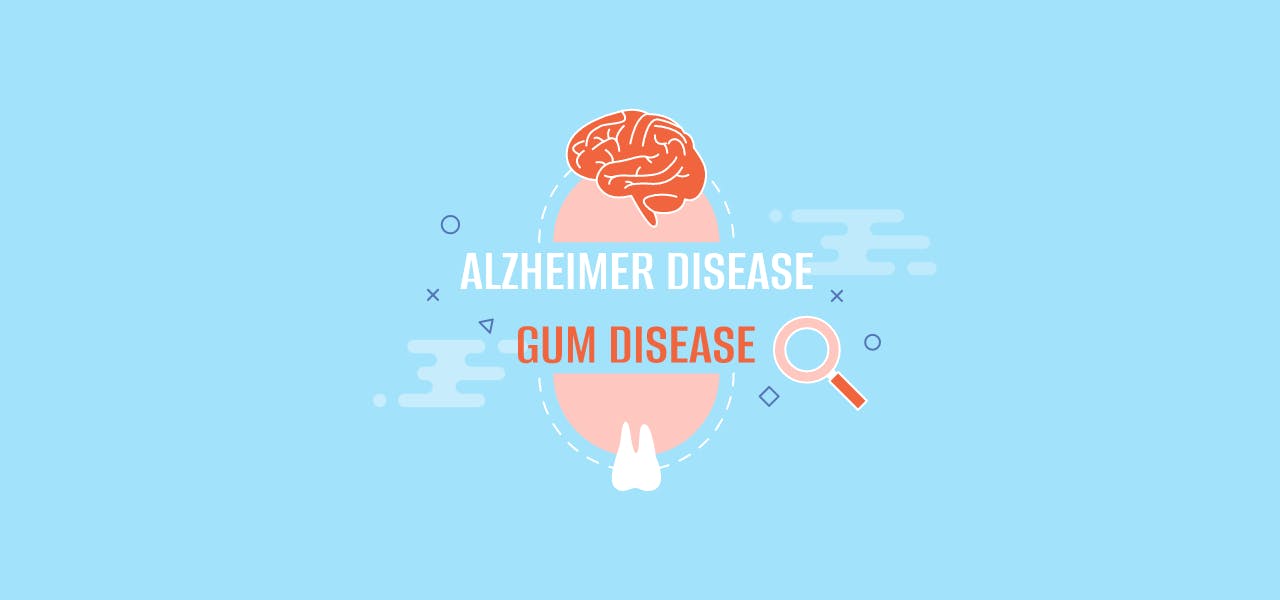Cognitive decline is a significant problem that seems to be getting worse instead of better with the technological innovations of today. The need for research on mental decline to learn the causes and potential methods of prevention has expanded to multiple industries, and the results of some of these studies have actually been quite surprising.
One of the most recent unexpected outcomes came from a research study performed by the NIA Intramural Research Program found that, of all things, Alzheimer’s Disease can be the result of periodontal disease. This surprising link has periodontists working with researchers to find out exactly why the two conditions relate to each other and how this information can be used in the future to help prevent the debilitating mental disease.
Two Totally Different Conditions: Gum Disease and Alzheimer’s
At the surface, the two medical conditions are completely unrelated. Aside from the fact that they both originate in the head area, there wouldn’t be anything glaring that jumps out at us and states a connection.
Periodontitis, commonly known as gum disease, is an infection in the gums that damages them and, if left untreated, can eventually destroy the jawbone. Although it is found in over three million people per year, it is preventable and the signs are obvious: swollen, tender, and red gums, usually along with tooth decay. We know that it stems from poor oral hygiene and that, if not taken care of, it can be a risk factor for heart disease and lung conditions. But it’s easily treatable with professional cleanings, better oral hygiene habits, antibiotics, and maintenance. In some cases, surgery is necessary, but most cases resolve after treatment within three to six months.
Alzheimer’s Disease, on the other hand, is considered a cognitive condition, not necessarily a medical one, although it does require a medical diagnosis. Over three million people annually are diagnosed with this progressive disease. Once it begins to show symptoms, it results in the decline of memory and other mental functions. Alzheimer’s begins as brain cell connections degenerate and die. Over time, the cells themselves are destroyed and don’t regenerate. This kills the connections in the brain that save our memories and the ability for the body to function. The first symptoms are typically memory loss and confusion. Medication and strategic management can improve the symptoms for short periods, but there is currently no cure. It can last for years and is usually lifelong, slowly degenerating continuously.
There’s no blatant connection between the two, but researchers managed to find a surprising link.
Linking These Together in Research
A current study that was published in the Science Advances journal brought to light a strong link between periodontal disease and Alzheimer’s. The bacteria that is usually found in gum disease patients is the common factor, and once that was recognized, the study was able to progress significantly forward.
The connection brought the next step, as researchers pulled samples of saliva, brain tissue, and spinal fluid from Alzheimer’s patients. These studies were the results of patients who were currently fighting the disease and those who had passed from it as the underlying cause.
The bacteria in question, P. gingivalis, was found in almost every sample. 96% of the brain tissue samples had gingipains in them. This enzyme is toxic and is secreted by the bacteria in scrutiny. People who had symptoms of Alzheimer’s almost all had P. gingivalis or gingipains in their sample study.
Adding more science to this otherwise dubious connection was the finding that in the study, P. gingivalis present also increased how much amyloid beta was produced. This compound has long been attributed to Alzheimer’s. Animal studies after this connection demonstrated that P. gingivalis does, indeed, travel from the mouth to the brain. If left there too long, the gingipains produced destroy brain neurons.
The significance of these findings is a celebration for both periodontists and the wide expanse of medical professionals who treat Alzheimer’s. It’s what periodontists have been trying to get across to the general population for ages: a healthy mouth is integral to an overall healthy body. If you want to avoid dementia and related conditions, one place to start is in the mouth. With this knowledge, providers who care for elderly patients and those at risk for Alzheimer’s now have one more tool at their disposal as a means of preventing and managing the further decline of each patient.
